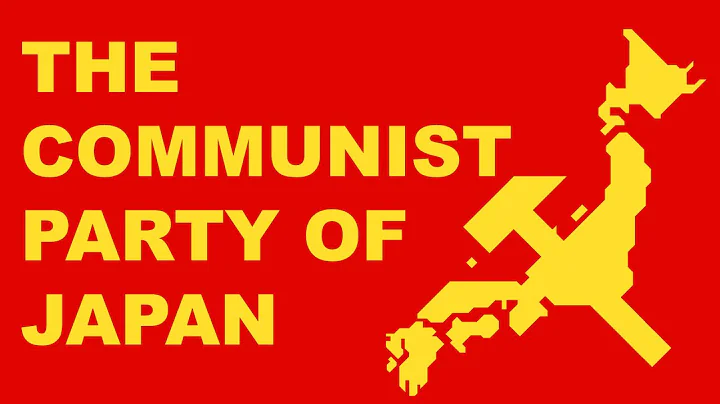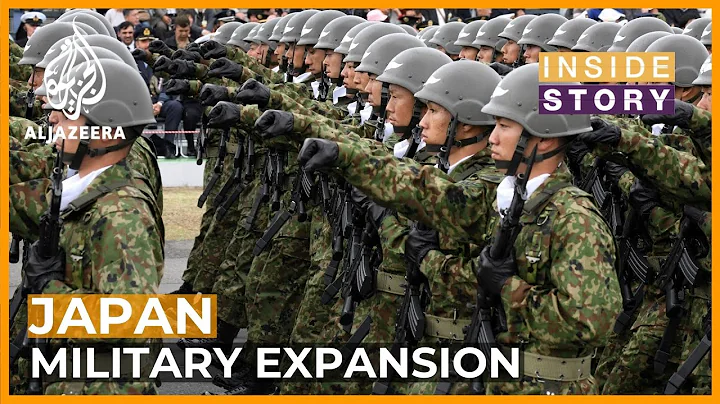During the Anti-Japanese War, he fought far away from his hometown in the Feng (Ning), Luan (Ping) and Mi (Yun) areas, and made outstanding contributions to the government construction, party organization building, and armed construction of the Feng-Luan Mi base area, especially in adhering to the Feng-Luan Mi base area. In the anti-Japanese struggle in "no man's land", he played a key leadership role. He is the "party representative" of the Fengluanmi base area - Hu Yi, secretary of the Fengluanmi County Committee of the Communist Party of China.

Hu Yi
Aiming high and embarking on the road of resistance
Hu Yi, formerly known as Hu Baomiao, also known as Hu Weiyi and Hu Yi, was born in 1915 in Chengshan Village, Rongcheng County, Shandong Province. In 1929, Hu Yi went to Rongcheng County No. 1 Primary School and actively participated in revolutionary propaganda activities with classmates such as Cao Manzhi and Li Yaowen and launched a boycott of Japanese goods.
In 1932, Hu Yi went to Jinan Middle School to study. While in school, he began to read Marxist-Leninist works and progressive books and periodicals, actively participated in anti-Japanese patriotic activities, often wrote articles exposing the dark society at night, established contact with party organizations and joined the Communist Party of China, changing his name to Hu Weiyi, and later to Hu Yi to express his We must use tenacious perseverance to carry the revolution through to the end.
In 1935, Hu Yi returned to his hometown and co-founded the "Public Education Center" with Liu Guoheng and others, secretly distributing progressive books and periodicals. During this period, the Rongcheng County party organization organized revolutionary activities under the cover of the "Public Education Center". In the same year, Hu Yi participated in the "11.4" riots led by the Jiaodong Special Committee of the Communist Party of China.

Rongcheng County People's Education Center site
After the riot failed, Hu Yi's brother Hu Baosen was arrested. He was also in danger of being arrested. At this time, he, Cong Lieguang and Wang Yiping were transferred to Beiping. In August 1936, Hu Yi Dispatched by the Peking underground party organization to Xi'an to join the newly formed cadet team of the Northeast Army of the Northeast Army to carry out anti-Japanese activities.
Hu Yi arrived in Xi'an and began to receive formal military training, which laid the foundation for his future armed struggle against Japan. After the Xi'an Incident occurred, Hu Yi joined the anti-Japanese propaganda team and went to the Northeast Army troops to preachthe anti-Japanese national united front and the CCP's policy of peacefully resolving the Xi'an Incident. Later, because his identity as a member of the CCP was exposed, he was expelled from the cadet corps and returned to the army. to Peiping.
After the outbreak of the National Anti-Japanese War, Hu Yi and more than 60 patriotic young people went to the reclamation area to work in the reclamation area with Bai Yihua, secretary of the Working Committee of the Heshuogongzhong Reclamation District in Suixi, and served as the organizational officer of the CPC Reclamation District Working Committee, full-time party organization work. In the reclamation area, we lived and worked together with the people in the reclamation area, and carried out anti-Japanese propaganda to the masses in accordance with the arrangements of the party organization. In October 1937, in accordance with the deployment of the party organization, Hu Yi and others took advantage of the lunch opportunity to bravely and tactfully surround the reactionaries in the reclamation area, seize all weapons and ammunition, and then set up an anti-Japanese vanguard corps, crossing the Yellow River eastward to the anti-Japanese front line. They fought and walked, from Shanxi to and in Pingxi, and Hu Yi gradually grew up in the battle.
In April 1939, the anti-Japanese vanguard arrived in Pingxi and jointly formed the North China People's Anti-Japanese Allied Forces with the Jidong Anti-Japanese Allied Forces. Hu Yi served as the organizational section chief of the Political Department of the Allied Forces Headquarters. At the end of this year, the army was reorganized into the 10th Infantry Regiment of the Shanxi-Chahar-Hebei Military Region of the Eighth Route Army. Bai Yihua was appointed as the regiment commander, Hu Yi was appointed as the organizational section chief, and the party secretary of the regiment branch was appointed, officially becoming an Eighth Route Army political cadre.
Working hard to open up the base area
In May 1940, Hu Yi followed the main force of the 10th Regiment to open up the Fengluan Anti-Japanese Base Area. In the early days of the Anti-Japanese War, the Fengluanmi area was located at the junction of the puppet Manchukuo and the puppet North China regions. The Japanese and puppet regime had weaved a tight ruling network here in an attempt to consolidate its rule and cut off the two major anti-Japanese forces in Pingxi and Jidong. Contact with the base. Opening up Fengluanmi and establishing a transportation corridor between Pingxi and Jidong base areas is a very important task for the Communist Party of China and the Eighth Route Army in Pingxi.
In June of the same year, Fengluanmi United County was established, and Hu Yi was appointed as the director of the Organization Department of the Fengluanmi United County Working Committee of the Communist Party of China. In July, the Working Committee opened a training class for cadres of the National Salvation Congress. Hu Yi personally taught basic party knowledge and socialism courses, and participated in the compilation of the "Party Member Literacy Textbook."
In 1941, Bai Yihua, the founder of Fengluan Anti-Japanese Base Area, unfortunately died in the battle of Maying. When the bad news came, Hu Yi was so sad and angry that he wrote the article "The Great Creator" to express his grief.He wrote: "Working and living together with Bai Yihua has been like a day for four years. Bai Yihua has been busy day and night to complete the great and glorious task of opening up Fengluanmi, not afraid of any hardships or fatigue. In the continuous crushing of the enemy's siege, Fengluanmi's situation opened up. In order to commemorate and commemorate him, we can only cheer up, redouble our efforts, and move forward bravely to complete his unfinished revolutionary cause."

1944, Fengluanmi The Anti-Japanese United County Government erected a monument for martyr Bai Yihua, and comrades paid their respects to the leader of the regiment Bai Yihua.
Hu Yi said this in his article, and he also does this at work. In order to complete the unfinished business of martyr Bai Yihua, he ignored his own safety and traveled between enemy and puppet strongholds to educate the masses, develop party members, visit enlightened gentlemen at home, and do a good job in united front work. It has made great contributions to the gradual consolidation and development of the newly established Fengluan Mi United County.
In August 1941, the Fengluanmi County Committee of the Communist Party of China was formally established, and Hu Yi was appointed as the county committee member and organization director. The county party committee strengthened the party's organizational building, developed the anti-Japanese armed forces, strengthened the leadership of the anti-Japanese mass organizations, and established the Anti-Japanese Salvation Association at all levels. Thanks to the hard work of Hu Yi and others, party branches and party groups were established in every village of Fengluanmi Anti-Japanese Base Area, and the total number of party members increased to more than 700.
Willingness like steel to stick to the "no man's land"
Starting from the winter of 1941, the puppet Manchukuo and the puppet Japanese puppet troops in North China madly implemented the "three lights" policy in the Fengluan dense base area, creating a "no man's land" of about 120 miles in the east, west, north and south. "Inhabited area", the living environment is extremely harsh. However, Hu Yi vowed not to leave the base area and led the army and people to tenaciously persist in the anti-Japanese struggle in the "no man's land". He lived in hiding in the mountains. Without a place to live, he lived in caves and buildings on the Great Wall. Without food, he ate wild vegetables and tree bark. He resolutely implemented the party's instructions that "districts should not be separated from districts, and counties should not be separated from counties." He told the cadres: "It is equally glorious to hold on to the area and to open up the area!" He said to the people who still persisted in the struggle in the mountains: "Burn the thatched cottages and build tiled houses, and burn the tiled houses to build buildings in the future. If you persist to the end, victory will surely come!"
In April 1942, the Japanese and puppet troops caused a massacre in the smelly water pit that shocked Pingbei. County Magistrate Shen Shuang died heroically, and some cadres and the masses became pessimistic. At that time, only Hu Yi was in the "no man's land" in Fengluanmi County Committee. He took emergency measures decisively and decided to appoint Jiang Zhuo, the secretary of the county government under the pseudonym Liu Zhenhua, as the acting county magistrate. In the name of the county magistrate, he issued a notice to calm the people and mobilized the county urgently. The brigade and staff went deep into the villages and ravines to expose the rumors spread by the enemy that "Fengluanmi has been completely eliminated and the county government has been eliminated", which reversed the pessimism and wavering mood.

Local cadres in the Pingbei Anti-Japanese Base Area persisted in working in the "no man's land" created by the Japanese and puppet troops.
During this period, almost all the grassroots party organizations in Fengluan Anti-Japanese Base Area were destroyed. Hu Yi and other leaders of the county committee carried out the clean-up and rectification of party organizations, carefully reviewed party members, and restored and rebuilt the party's grassroots branches. After hard and meticulous work, the majority of party members in Fengluan Mihe County became more firm in their anti-Japanese stance. In order to summarize the anti-Japanese struggle experience and lessons of the people of Fengluanmi during the most difficult period of the Anti-Japanese War, he and Ma Li, deputy secretary of the county party committee, wrote the "Summary of the Work of the Fengluanmi County Committee of the Communist Party of China in 1942", which was more than 40,000 words long. This summary played a guiding role in the anti-Japanese struggle in the Fengluanmi area and left extremely rich and valuable historical materials on the anti-Japanese struggle for future generations.
Hu Yi lives a simple life, is diligent and studious, works conscientiously, adheres to principles, and is deeply supported by the majority of cadres and the masses. In the winter of 1943, Hu Yi served as secretary of the Fengluanmi County Party Committee, and later served as county magistrate and political commissar of the fifth district team. Beginning in the autumn of 1944, Hu Yi led the county to launch a campaign to reduce rents and increase capital to improve farmers' lives and mobilize their enthusiasm for participating in the anti-Japanese struggle. Through propaganda and organization, carrying out reasoning struggles, and consolidating the results of victory, the rent reduction and capital increase movement has achieved obvious results. Farmers' land rent has generally been reduced by 25%, the wages of long-term workers have increased, and family life has been improved to a certain extent.
The rent reduction and capital increase movement is a fierce struggle.During the campaign to reduce rent and increase capital in Fengluanmi County, Wang Xiaopeng, a class dissident who had infiltrated the cadre ranks and the county civil affairs section chief, relied on his authority to forcibly redeem 18 acres of land that had been sold under a death deed in his home, causing a very bad influence among the masses. , which made farmers doubt rent reduction and asset increase, which directly interfered with the progress of the movement. On December 31, 1944, cadres from Fengluanmi County held a meeting in Xizhuangzi to help Wang Xiaopeng correct his wrong ideas. Hu Yi adhered to his principles and severely criticized Wang Xiaopeng. Wang Xiaopeng held a grudge. On the night of January 1, 1945, he broke into Hu Yi's room with a gun, killed him while he was sleeping.

Martyr Hu Yi’s Tomb
After his death, Hu Yi was buried outside Xizhuangzi Village, Fengjiayu. In April 1954, he was moved to the Martyrs Cemetery of North China Military Region in Shijiazhuang. (Source: Party History Research Institute of Weihai Municipal Committee of the Communist Party of China)





















